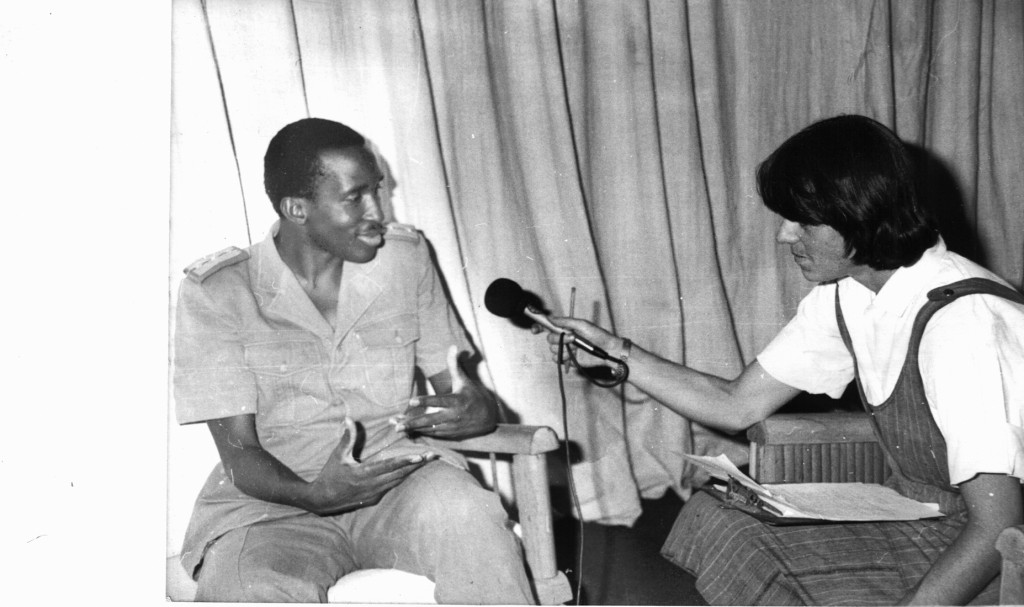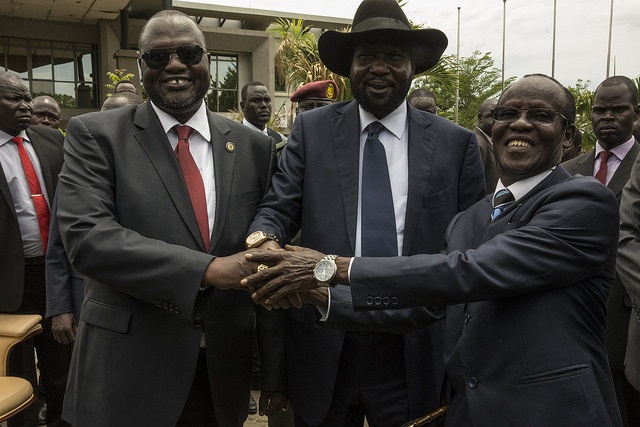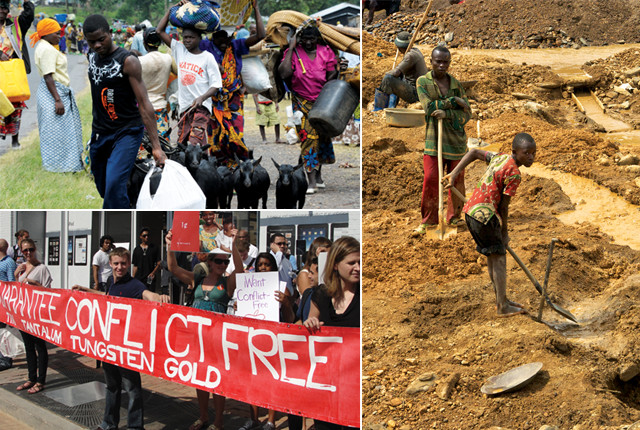Burkina faso:In 1987, Blaise Compaoré overthrew Sankara and took over the presidency. 27 years later, Sankara’s ghost may be coming back to return the favour. By Brian Peterson 30 years ago, on 4 August, 1984, the former French colony of the Upper Volta was re-baptised as ‘Burkina Faso’ amidst a revolutionary process that proved to be […]
The post Burkina Faso: A Thousand Sankaras Come of Age appeared first on Think Africa Press.
Burkina Faso: A Thousand Sankaras Come of Age – Revolution, Legacy, and Political Return
Burkina Faso: A Thousand Sankaras Come of Age – Revolution, Legacy, and Political Return
In 1987, Blaise Compaoré overthrew Thomas Sankara, the beloved revolutionary leader of Burkina Faso, and took over the presidency. 27 years later, the legacy of Sankara may be making a political return, as his influence continues to reverberate throughout the nation. Sankara’s vision for a self-sufficient and independent Africa, free from colonial influence, is still a source of inspiration for many in Burkina Faso and across the continent.
Political Return
In 1987, Blaise Compaoré overthrew Thomas Sankara, the beloved revolutionary leader of Burkina Faso, and took over the presidency. 27 years later, the legacy of Sankara may be making a political return, as his influence continues to reverberate throughout the nation. Sankara’s vision for a self-sufficient and independent Africa, free from colonial influence, is still a source of inspiration for many in Burkina Faso and across the continent.
The Legacy of Thomas Sankara
Thomas Sankara, often referred to as “Africa’s Che Guevara,” came to power in 1983 after a military coup. His government quickly implemented radical reforms, including education for all, women’s rights, and land redistribution. Sankara was committed to eradicating the colonial legacy in Burkina Faso and promoting African unity and self-reliance. He introduced policies that sought to free the country from foreign influence and promote self-sufficiency. Sankara’s leadership style was bold and uncompromising, with a focus on pragmatic solutions to the pressing challenges of poverty and social injustice.
Social Reforms and Impact on Women
One of the most enduring aspects of Sankara’s legacy was his commitment to women’s rights. His government appointed women to high political offices, promoted the abolition of forced marriages, and pushed for women’s education and empowerment. Sankara’s policies were groundbreaking for their time, and his vision for gender equality was far ahead of many countries, even in today’s world.
Despite his visionary approach, Sankara faced opposition, especially from traditional leaders and groups resistant to his radical changes. However, his charisma and unwavering commitment to justice garnered him significant support, especially from younger generations and marginalized communities. Sankara’s rise to power was also marked by his ability to navigate the complicated relationships between the military and the political elite, a skill that would ultimately prove crucial in the face of adversity.
The 1987 Coup
The turning point in Burkina Faso’s political history came in 1987, when Blaise Compaoré, who was once a close ally of Sankara, led a coup that resulted in Sankara’s assassination. Compaoré’s leadership marked the beginning of an era of political instability, which continued for decades. Sankara’s death, although politically expedient for his rivals, did not mark the end of his influence. Instead, his ideals began to take on a more symbolic form as many Burkinabe people continued to honor him as a martyr for the revolution.
The Long Shadow of the Coup
Compaoré’s reign was characterized by a mix of economic stagnation, political repression, and a growing reliance on foreign aid. While he maintained power for 27 years, Sankara’s shadow loomed large over his government. The people of Burkina Faso never fully embraced Compaoré’s leadership, and many of the revolutionary ideals Sankara had championed remained popular among certain segments of society. Sankara’s legacy became an undercurrent in Burkinabe politics, and it continued to influence political discourse even as the country experienced periods of stability and unrest.
The Return of Sankara’s Influence
In recent years, there has been a resurgence of interest in Sankara’s legacy. His ideas on governance, independence, and social justice have gained traction once again, particularly among young people. The 2014 protests that led to the ousting of Compaoré after 27 years in power were seen by many as a revival of Sankara’s spirit, with people demanding the return to the revolutionary ideals that Sankara once championed. This moment of national awakening showed the extent to which Sankara’s vision had permeated the national consciousness, despite the many years of political repression.
The Role of Youth in the Revolution
One of the most powerful aspects of the 2014 uprising was the role played by youth. The younger generation, disillusioned with the economic challenges and lack of political freedoms under Compaoré’s regime, turned out in droves to demand change. These young people, many of whom had only heard of Sankara’s revolution through the stories of their elders, found inspiration in his call for African self-reliance and social justice. They saw in him not just a hero, but a symbol of hope for a brighter future.
Impact on Modern Burkina Faso
Burkina Faso today is a nation at a crossroads, balancing the remnants of its revolutionary past with the challenges of the modern political landscape. The legacy of Sankara continues to shape public discourse, especially as the country seeks to regain its independence from foreign influence and rebuild its economic infrastructure. While the country still faces significant challenges, such as poverty, corruption, and security threats, Sankara’s vision remains a guiding force for many who hope to see the country return to its revolutionary roots.
In the post-Compaoré era, the government has undertaken efforts to revive Sankara’s economic policies, focusing on agriculture, self-reliance, and reducing dependency on foreign aid. However, the challenges are immense, and the current leadership must navigate both internal and external pressures as it attempts to modernize the economy and ensure the safety and prosperity of its citizens.
Challenges Facing the Nation
Despite these aspirations, Burkina Faso faces numerous challenges, particularly with regard to security. The rise of extremist groups in the Sahel region has impacted Burkina Faso’s stability, with many areas experiencing violence and displacement. The country must balance the need for political and economic reforms with the urgent need to secure its borders and maintain internal peace.
Conclusion
Burkina Faso’s history is marked by the extraordinary life and tragic death of Thomas Sankara. The echoes of his revolution, his bold leadership, and his commitment to a better future for all Burkinabe resonate to this day. The idea of a “thousand Sankaras” coming of age reflects the hope that his vision can inspire a new generation to create the changes that are needed in Burkina Faso and throughout Africa.
Ultimately, the return of Sankara’s influence is not just about nostalgia for a past era. It is about reawakening the revolutionary spirit that challenges the status quo, demands justice, and strives for a better future. As Burkina Faso continues its journey, the lessons of Sankara’s life and death will remain an integral part of the country’s political and social fabric, helping to shape the future of a new generation.
thanks for your reading for more you can visit our website
The post Burkina Faso: A Thousand Sankaras Come of Age appeared first on Think Africa Press.




